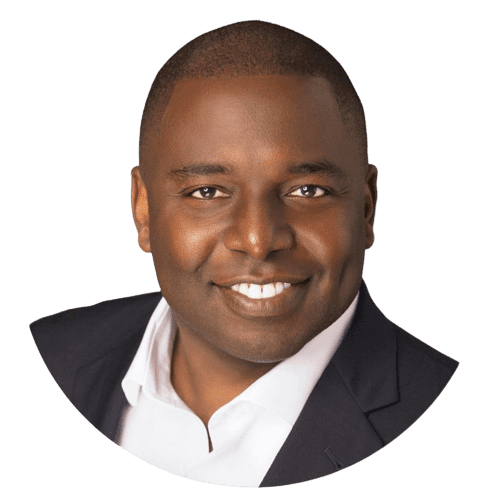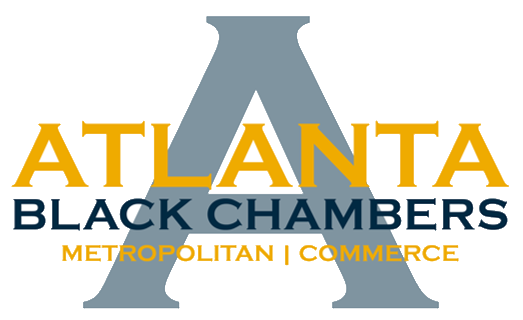Atlanta Black Chambers Leadership

Nkosi Leary
Veteran Entrepreneurs Group Chair
Realtor, Berkshire Hathaway
Nkosi serves as the Chair of The Veteran Entrepreneurs Group of the Atlanta Black Chambers. He is also a specialized Real Estate Agent with professional sales management experience as a U.S. Marine Corps recruiter.
An accomplished leader having served over 26 years of continuous military service with problem-solving experience in all military environments through communication and teamwork. Solutions-driven strategist and project manager, skilled at creating business plans that drive improvements and streamline processes in flying squadrons, military organizations, and corporate entities.
You can learn more about Nkosi by visiting his LinkedIn page.
Fun facts about him.
He is an advanced SCUBA Diver and Marathon runner.
What is his role within the Atlanta Black Chambers, and what led him to become involved in this organization?
Chair of the Veteran Entrepreneurs Group.
How does his mission align with the Atlanta Black Chambers works to support Black-owned businesses in the Atlanta area?
The Veteran Entrepreneurs Group aims to advance ABC’s long-term brand through networking, ongoing education, professional development, fundraising, and community service.
Our Group Mission Statement: To facilitate training and outreach to aspiring emerging and established veteran-owned businesses and entrepreneurs.
What are some of the key challenges facing Black-owned businesses in the current economic and social climate, and as an exemplary leader of the Atlanta Black Chambers, how he addresses these challenges?
Let’s answer that from an African American Veteran perspective:
Transitioning from the military to civilian life can be challenging, involving acquiring new skills and knowledge and adapting to a different culture and way of life. In addition to the difficulties in navigating unfamiliar bureaucracies, corporate language barriers and feelings of isolation may make the transition even more challenging. Moreover, adjusting to a different work-life balance can also be difficult, mainly if the veteran has been in the military for a long time and has become accustomed to a specific routine and way of doing things. These challenges are similar to ex-pats adapting to a new culture, language, and work environment when moving to a different country.
The way we address these challenges is through our mission statement.
Our Group Mission Statement: To facilitate training and outreach to aspiring emerging and established veteran-owned businesses and entrepreneurs.
His three success stories or achievements via his contributions to the Atlanta Black Chambers.
We honor all our Women Veterans with a Rose Presentation Ceremony.
We created an ongoing Women’s Self-protection Seminar that includes weapons familiarization, self-defense techniques, and exercise.
We conduct workshops that enable Veteran Entrepreneurs to the opportunity to earn a Service Disabled Veteran Owned Small Business (SDVOSB) or Veteran Owned Small Business (VOSB) certifications.
What are his goals for the future of the Atlanta Black Chambers, and how does he envision the organization evolving to meet the needs of its members and the wider community?
Ways we measure the group’s success:
The number of veterans served: The organization can track the number of veterans participating in their programs, attending workshops and training sessions, and receiving financial assistance to start their businesses. The higher the number of veterans served, the more effective the organization’s efforts are in reaching and supporting its target audience.
The success rate of veteran-owned businesses: The organization can measure the success rate of businesses started by veterans who received assistance from their programs. This can include tracking the number of businesses that survive beyond the first year, the amount of revenue generated, and the number of jobs created. A high success rate would indicate that the organization’s programs are providing veterans with the necessary resources and skills to build successful businesses.
Feedback from veterans: The organization can conduct surveys or hold focus groups with veterans who have participated in their programs to gather feedback on their experiences. This can provide insights into what aspects of the program were most helpful, areas for improvement, and overall satisfaction with the program.
Partnerships and collaborations: The organization can evaluate the number and quality of partnerships and collaborations it has established with other organizations, government agencies, and businesses. Strong partnerships can help the organization expand its reach, access new resources, and provide more opportunities for veterans.
Cost-effectiveness: The organization can evaluate the cost-effectiveness of its programs by assessing the amount of funding and resources it requires to serve veterans and their families. This can include analyzing the funding ratio to the number of veterans served, comparing the costs to similar organizations, and assessing the program’s overall impact on the community.
Life’s Motto / Powerful Quote.
Just shut up and color!
